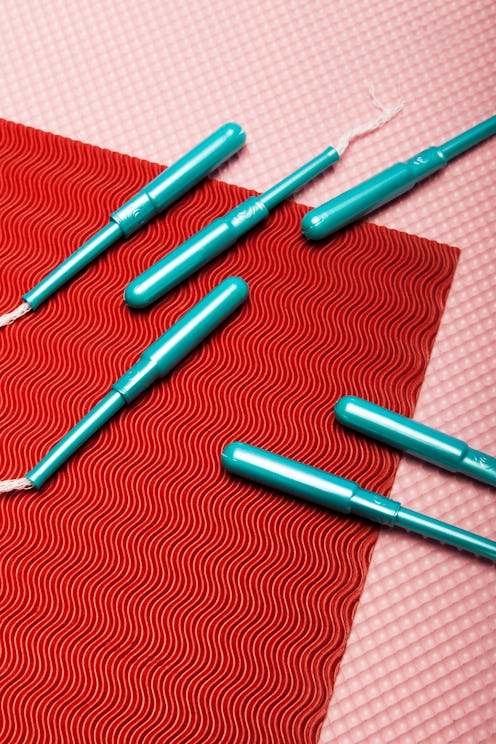Health
Experts Explain How Dry January Can Affect Your Period
The indirect effects may be subtle.

You’re probably familiar with the concept of Dry January, where you kick off the New Year with a month of abstaining from alcohol. While this resolution is thought to set the stage for other healthy lifestyle habits down the road, it also has some benefits that kick in right away. Not drinking for a month can help your sleep and energy levels — but can Dry January affect your period?
“It’s unclear if a month of not drinking alcohol will significantly change your period, but it’s possible that if you are not drinking, you may be less likely to have a hangover or be dehydrated, which would make PMS symptoms worse,” explains Dr. Heather Irobunda, MD, an OB-GYN, pointing specifically to symptoms like breast tenderness, irritability, or mood swings.
She cautions against expecting any big change in your monthly flow after four weeks — or one cycle — sober. “There’s no real hard and fast evidence that not drinking alcohol for a month (if you are a social drinker and not someone with an alcohol use disorder) will have any real change in your periods or PMS.” She adds, however, that the overall improvement of your health that not drinking can bring about may improve your periods.
It's worth remembering that drinking itself can mess with your period. “Both heavy drinking and social drinking can lead to irregular menstrual cycles; the reason behind this is that alcohol causes increased levels of testosterone and estrogen, and decreased levels of progesterone, all of which disrupt ovulation leading to irregular menstrual cycles,” explains Dr. Iris Orbuch, MD, an OB-GYN.
According to the National Institute on Alcohol Abuse and Alcoholism, regular heavy drinking, defined as at least eight drinks per week for women, can lead to irregular periods. Further, according to a 2018 study in BMJ Open, alcohol consumption is associated with increased PMS symptoms, Dr. Orbuch says, and more drinking was linked with worse symptoms. It’s not clear exactly how much alcohol it takes to start messing with your cycle — it’s likely to vary from person to person — but limiting your intake can potentially help minimize these effects.
If you notice changes in your period after Dry January, the month off of alcohol might not necessarily be to blame. According to Dr. Alyssa Dweck, MD, an OB-GYN, it’s important to note that lifestyle habits may change with the seasons, which means that your menstrual cycle may be impacted regardless of whether or not you go sober for January. Research suggests that ovulatory function slows down in the wintertime, which can affect your cycle. Dweck points to post-holiday weight changes, or a change in outdoor activity or exercise as factors that can affect your period in the new year.
There are lots of ways to improve PMS outside of a month-long challenge. “In addition to limiting alcohol, other things you can do to lessen PMS symptoms include decreasing caffeine intake, exercising, getting enough sleep, and eating healthfully,” Dr. Orbuch says.
So while the jury’s out on whether Dry January will 100% improve your period, you can at least feel good knowing that laying off booze likely won’t make it worse — and you’ll get a slew of other benefits to boot.
Experts:
Dr. Iris Orbuch, MD
Dr. Alyssa Dweck, MD
Studies Cited:
Danilenko, K. V., Sergeeva, O. Y., & Verevkin, E. G. (2011). Menstrual cycles are influenced by sunshine. Gynecological endocrinology : the official journal of the International Society of Gynecological Endocrinology, 27(9), 711–716. https://doi.org/10.3109/09513590.2010.521266
Mendelson, J. H., & Mello, N. K. (1988). Chronic alcohol effects on anterior pituitary and ovarian hormones in healthy women. The Journal of pharmacology and experimental therapeutics, 245(2), 407–412.
Fernández, M., Saulyte, J., Inskip, H. M., & Takkouche, B. (2018). Premenstrual syndrome and alcohol consumption: a systematic review and meta-analysis. BMJ open, 8(3), e019490. https://doi.org/10.1136/bmjopen-2017-019490
This article was originally published on